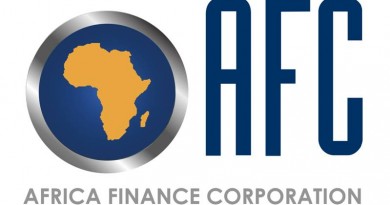N50 Stamp Duty charges by banks: Chairman JTB clarifies Court verdict – by Agwu, C. J
The judgment of the Federal High Court, Asaba, delivered on 9th December, 2020, in a Suit No. FHC/L/CS/126/ 2016 and Appeal No CA/L/437A/2014, has been brought to the attention of the Joint Tax Board. The Board wishes to use this medium to clarify some grey areas contained in the judgment including the legality or otherwise of the deduction of N50 Stamp Duty charges by Nigerian banks.
The judgment was in relation to the suit filed to challenge the legality of a circular issued by the Central Bank of Nigeria referenced CBN/GEN/DMB/02/006 of January 15, 2016 with an instruction to banks to deduct N50 as stamp duty on electronic transactions, teller deposits or transfers of monies from N1, 000 (One Thousand Naira) and above on current accounts.
The Board in its 146th meeting held on 18th December, 2020 resolved to bring to the attention of the general public and, particularly, the concerned parties that the proceedings of the judgment commenced prior to the passage of Finance Act, 2019. And that the Finance Act 2019 has laid to rest the question of legality and authority to charge and collect N50 Stamp Duty charges on electronic transactions, teller deposits or transfers of monies by Nigerian banks.
Therefore, for the sake of emphasis, the general public is urged to note that the provision of Section 54 of the Finance Act, 2019 has already amended and replaced the provisions of Section 89 of the Stamp Duties Act, CAP S8 LFN, 2004 particularly Subsection (3) reproduced hereunder:
“Notwithstanding the provisions of the Stamp Duties Act, electronic receipt or electronic transfer for money deposited in any bank or with any banker, on any type of account, to be accounted for and expressed to be received of the person to whom the same is to be accounted for of amounts from N10,000 upwards shall attract a singular and one-off duty of the sum of N50. Provided that money paid into one’s own account or transferred electronically between accounts of the same owner within the same bank shall not be chargeable on duty”.
To set the records straight, the judgment of the Federal High Court, Asaba, under reference, ONLY nullified the CBN Circular in question and NOT the N50 stamp duty and also reaffirmed the position of the tax authorities in Nigeria as having the right to administer stamp duty matters as contained in the Stamp Duties Act, LFN 58 2004 as amended.
By virtue of the provisions of Section 4 (1&2) of the Stamp Duty Act, S8 LFN of 2004 as amended, the Federal Inland Revenue Service is the ONLY competent agency authorized to impose, charge and collect stamp duties in relation to transactions between individuals and corporate bodies on behalf of the Federation; while the relevant tax authority in a state is the ONLY competent agency authorized to impose, charge and collect stamp duties in relation to transactions between persons or individuals.
Members of the public, banks and other financial institutions are hereby notified that the Joint Tax Board shall continue to carry out its statutory functions as contained in the Stamp Duties Act, LFN 58 2004 as amended.
Consequently, duty payers should note that the N50 charges on electronic transfer for money from N10, 000 upward deposited in any bank is statutory and they should continue to comply with the provisions of the law.
Signed
Muhammad Nami , Chairman, Joint Tax Board (JTB“` )




